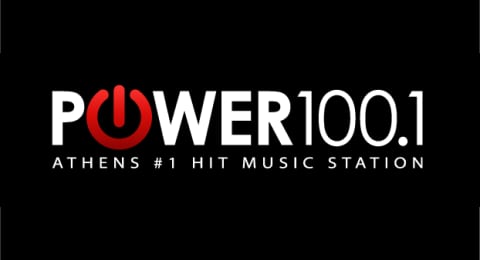Which startup business credit cards don’t require a credit check?
A credit check is when a lender pulls your credit report to assess how risky it is to lend you money. Most traditional business credit cards rely on this step, which can be a roadblock if you haven’t established credit yet.
Business credit cards with no credit check can help you get started without the usual barriers. These cards don't require a review of your personal or business credit score during the application process, making them a smart option if you're building credit from scratch or recovering from past challenges. Ramp discusses how business credit cards with no credit check work.
Business credit cards with no credit check don’t rely on your credit history to approve you. Instead, they evaluate real-time business data like revenue and cash flow. This makes them accessible to small business owners with no established credit.
1. Application without a credit pull
You apply for this business credit card using your employer identification number, business bank account, and proof of revenue. The issuer doesn't run a personal or business credit check. Instead, they assess financial health based on your cash balance, sales volume, or linked platform accounts like Stripe, Shopify, or Amazon.
2. Instant underwriting based on cash flow
Many issuers offer instant decisions by reviewing your connected accounts. Some set a minimum requirement (e.g., $5,000-$25,000 in a business bank account). Others look for a consistent sales history to determine eligibility and set your credit limit.
3. Issuance of virtual or physical cards
Once approved, you receive virtual cards immediately and can order physical ones. You can create multiple employee cards with custom spending limits and category restrictions.
4. Daily or monthly repayment structure
These cards usually operate as charge cards, where you can spend up to your approved limit, but you must repay in full, either daily or monthly, depending on the provider. This structure helps prevent interest charges and keeps your balance under control.
5. Automated spend management
Most cards come with built-in expense tracking, receipt capture, and accounting integrations. This gives you real-time visibility into spending, helping you manage budgets without manual work.
6. Business credit building
When you use the card and repay on time, the issuer reports your activity to business credit bureaus like Dun and Bradstreet, Experian Business, and Equifax Business. This helps establish a credit profile that improves your chances of getting business loans or higher credit limits later.
Things to consider before applying for startup business credit cards with no credit
Before you apply for a startup business credit card with no credit check, you need to understand how the issuer evaluates your business. Even without a credit score, approval isn’t automatic. Each provider has its own risk models, underwriting criteria, and operational requirements.
- You still need financial proof, even without a credit score. These cards don't check your credit, but they do review your financial activity. Issuers evaluate your business based on real-time data like cash flow, revenue, and banking history. Many require a minimum balance in your business bank account or proof of steady sales through platforms like Stripe or Shopify. If your business is pre-revenue or inconsistent with cash, you may not qualify.
- These are charge cards, not revolving credit cards. Since these are charge cards, you'll need to repay your balance in full on a regular schedule, usually daily or monthly. You can't carry a balance, and you won't accrue interest. This helps protect your business from debt, but it also means you need to manage cash flow carefully to avoid disruptions.
- You might pay a monthly or annual fee. Instead of charging interest, some issuers charge a flat monthly membership fee. For example, Nav Prime costs $49.99 per month. Other cards may be free but offer fewer features. You should only pay for a card if the value, like credit reporting, tools, or integrations, supports your business needs.
- Check which credit bureaus the card reports to. Not all cards help you build business credit. The card must report to commercial credit bureaus to establish your business credit profile. Using the card won't strengthen your credit file if it doesn't report.
- You must link your business bank account. Approval and credit limit decisions are based on your actual account activity. Issuers require you to connect your business checking account to review deposits and enforce repayment. Your credit limit may automatically adjust if your account balance drops or revenue declines.
- These cards are best for short-term, recurring business expenses. No-credit-check cards are built for operating spend, not long-term borrowing. Use them for software subscriptions, team travel, marketing, or vendor payments. With predictable repayment schedules and real-time tracking, you can keep spending aligned with your revenue cycle.
- Rewards and perks vary by provider. Some cards offer flat-rate cashback, while others focus on financial tools and credit-building. If perks are important, look for a provider that balances both. However, the biggest benefit of these cards is access and control, especially for newer businesses.
- Your business type and location matter. Most providers require that you're an LLC, C-Corp, or S-Corp and that you operate in the U.S. You'll also need a valid EIN. Some cards aren't available in specific states, so check eligibility before applying.
- Credit limits are dynamic. Your available spending adjusts based on your business activity. This means your limit can increase as your revenue grows. Dynamic limits help you scale while protecting you from overspending without relying on a static credit score.
Alternatives to startup business credit cards with no credit
If you don’t meet the cash or revenue requirements, need longer repayment terms, or want to access a different type of funding, there are other tools worth considering for financing your business. These alternatives can help you manage expenses and access capital, each with its own structure.
Secured business credit cards
A secured business credit card requires you to place a refundable deposit, which usually becomes your credit limit. If you deposit $1,000, your spending limit will be $1,000. These cards work like regular credit cards. You can use them for purchases, and you must pay your monthly balance. Most issuers report your payment history to business or personal credit bureaus.
This is a strong option if you’re just starting out and can’t qualify for unsecured credit. It gives you full control over how much you borrow and helps build a credit profile with responsible use.
However, your credit limit won’t increase unless you add to that deposit or qualify for an upgrade.
Vendor credit (Net-30, Net-60, Net-90 accounts)
Vendor credit allows you to buy now and pay later, usually within 30, 60, or 90 days. For example, if you order office supplies on Net-30 terms, you have 30 days to pay the invoice without interest.
Vendors like Uline, Quill, and Summa Office Supplies offer these terms and report your payment history to business credit bureaus. This helps you build trade credit, which is a major factor in your business credit score.
This type of credit is ideal for businesses that make regular inventory or supply purchases. It’s also one of the easiest ways to establish a credit record without using a traditional card.
Approval is often based on your business entity and EIN number, not your credit score. However, you may still need to pass a basic verification process.
Business lines of credit
A business line of credit gives you access to a flexible pool of funds. You can draw from the line as needed and only pay interest on what you use. Think of it like a credit card but with the ability to access cash.
Many online lenders offer business lines of credit based on your revenue instead of credit score. They’ll typically evaluate your monthly deposits and average balance to decide your limit.
This is a good option for startups with consistent revenue that need occasional cash to cover short-term gaps. It’s not a fit for one-time large purchases or long-term borrowing.
Microloans
Microloans are small loans (typically $500-$50,000) offered by nonprofit organizations, community lenders, and Community Development Finance Institutions. These lenders focus on supporting early stage or underserved businesses. Their approval process often considers your business plan, personal background, and potential impact.
Popular sources include the SBA Microloan Program, Accion Opportunity Fund, and Kiva. Some charge low interest rates and offer repayment terms of six months to several years.
Microloans work best if you need seed funding and don’t have access to traditional banks. But be prepared to provide financial documents, a clear business plan, and sometimes a personal guarantee.
Revenue-based financing (merchant cash advances)
Revenue-based financing offers upfront capital in exchange for a percentage of your future sales. The lender reviews your revenue history, typically from bank deposits or payment processors, and provides funding based on your cash flow.
You repay the amount as a fixed percentage of daily or weekly sales. The faster you earn revenue, the faster you pay it off.
This is useful if you have strong and consistent revenue but don’t qualify for traditional loans or credit cards. It works well for e-commerce and retail businesses with predictable sales cycles.
However, it’s not cheap. This type of financing can carry high fees, so make sure the repayment terms fit your margins and cash flow.
Streamline business finances with corporate cards that don’t require a credit check
Small business credit cards with no credit check remove the typical barriers to access. You don’t need a personal credit score, guarantee, or security deposit. All you need is a business bank account and strong cash flow.
This story was produced by Ramp and reviewed and distributed by Stacker.





